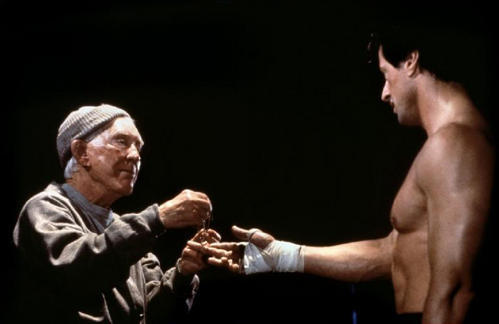I attended a conference yesterday morning at my sons’ school called, “I’m Parenting As Fast As I Can.” The head of the preschool was handing out the flyers a few days ago, and she said to me, “Erica, you’d love this. Come!” Of course I had a coffee meeting at that time, so my first reaction was “no.” But the title really hooked me in, and so I rescheduled my coffee meeting and decided I’d go (it wasn’t an urgent thing).
The conference was brilliant, and the hour flew by. The facilitator discussed the state of mommyhood today. How most of us are doing just that– parenting as fast as we can. Bombarded with literature on how to be the best possible mom, in a hurry to exposure our children to a wide array of extra curricular activities to make them “well rounded children,” impose a lot of structure so our kids are polite, achieving and well behaved. She discussed the micro-managing that many of us are doing as well… you know, the helicopter parent who hovers over the child so they can’t mess up or fail?
In fact, she recommended a book that she considers the “Dr. Spock” of today, and that has some really great tips for moms. We were coincidentally sent an excerpt of this book in today’s school newsletter, and that’s when I decided to write about this topic.
Take a read.
“Children need an opportunity to learn about the ‘wave pattern’ of emotions. If parents rush to rescue them from distress, children don’t get an opportunity to learn that they can suffer and recover on their own. Having the courage not to pamper and overprotect your child means that sometimes she will be uncomfortable, unhappy, or even in peril, but that you are willing to take a chance because of your commitment to her growth and development.
Free will is the attribute that will define your child’s life. How he makes decisions and chooses between right and wrong will directly influence everything else. Letting your child exercise free will doesn’t mean being permissive. It means allowing him to choose badly and to learn from the choices he makes.
Children can only learn to make choices when they are given the opportunity to do so. Begin by giving your child a chance to mess up, i.e., allow your child to make a ‘cheap mistake’.
Treating children’s daily distresses as an expected and unalarming part of life is an effective way to discourage them from turning small difficulties into big dramas. Building good character traits is a lifelong process. We can help children become calmer and more resilient by staying calm ourselves.
When horticulturists want to prepare hothouse plants for replanting outdoors, they subject them to stress to strengthen them. Through progressive deprivation of food and water and exposure to extreme temperatures, the plants grow stronger root systems and thicker stems. While parents do not need to deprive their children of life-sustaining essentials, they do need to prepare them for rough conditions by teaching them to tolerate some stresses and extremes.”
The Blessing of a Skinned Knee by Wendy Mogel
Now, depending what your parenting style is, you may consider this quite harsh. Or you may consider this kind of “tough love” necessary to allow your child to thrive in “the real world.” I think perhaps the answer lies somewhere in between.
In the fall, I wrote about my son, for the first time this year, not making the A team in hockey. He was DEVASTATED. Why? Because he got a big dose of humble pie! He has had the biggest cheerleading squad in his corner since he was born– two doting parents, four EXTRA doting grandparents, telling him he was the best. He’s been the superstar in everyone’s eyes. So if he had a bad game, instead of allowing him to own that poor play, he was coddled, and patted on the back, and still told, “Oh you’re still a star.” So what happened when, for the first time in his hockey life, he made the B team? He was shocked. It brings me back to one of my favorite movies, Rocky, when the heavyweight champion of the world, Rocky Balboa, realizes that he has been protected by his trainer Micky all along, by having had Rocky only take on fighters of a lesser caliber.
So, despite this unconditional cheering squad in my son’s corner, myself and my dad on the other hand, would be frustrated. How the hell is this kid gonna cope in the real world if all he’s ever told is he’s wonderful? So there I was, always the killjoy, at the end of every setback, reminding him, that no, he’s not the greatest thing since sliced bread, and that for me, all that matters is that he tried his best. So if he made the B team, well yah, it’s a disappointment, it means he wasn’t good enough enough for the A team, but that’s okay, and that we’re still so very proud of him. We can’t be the best at everything we do in life. But what matters is that you give it your all.
So here’s the “on the fence” question for this TGI Friday:
Do you shelter and protect, because these are our babies, and we want them to grow up with confidence and self esteem, in the bosom of those they love, and in turn perhaps risk doing them a disservice, or do you impose a sort of tough love, giving them the necessary tools to prepare them to thrive and cope in the “real world?”
I’m still on the fence.
I’d love to know your take on this.
Happy weekend,
xoxEDxox






Great post Erica and these are good questions. I was raised in a very strict home where the emphasis was on winning, getting the best grades, and being the best at everything. There was no room for failure and it was tough love all the way. Then I got burned out and hated everything and started resenting my parents for pushing me. I’m very relaxed with my own kids today and don’t push them too too hard and as a result they are calm, relaxed and well rounded children. I think we need to give them a bit of tough love to give them those coping skills, but we need to nurture them a lot too. It’s a very fine line.
I believe in tough love with nurturing. Look at how your son had such a hard time dealing with the rejection. When we coddle our kids, I agree that we are doing them a disservice. Good topic.
I think I am with you on this one…..Some where right in the middle. Of course I love to coddle and protect my children from harm but letting them eat some humble pie once in a while is also a good thing. It lets them learn that even when they don’t get what they want they will live through it even if it hurts a little bit at the time. I have two daughters and some times struggle to find a balance of either being to strict or to lax. I now understand all of the comments my mother used to make to me about all the issues of growing up. I now find myself saying some of the exact same things to my own children. It makes me laugh….and cry! 🙂 But a well rounded dose of being in the middle on this one is probably a good thing. Just my opinion.
I think the entire problem is being consistent (I”m never consistent) and knowing what to do in each different case. When do you coddle and when should you be tough? I never know how to react in any given moment.
It’s a really fine line between building your child’s self-esteem and making them aware that they are not perfect, they don’t have to be, and that’s OK. I think there is too much information out there and so much pressure on parents to “do it right” and on our kids to perform. Lost are the days when you used to roam the neighbourhood with your friends seeking adventures and learning on your own. Now everything is structured and kids don’t know how to amuse themselves. Everything is also “instant” in this day and age of technology, and kids don’t understand the concept of having patience. I think we live in complicated times and that we need to take a step back and listen to our intuition more. Be a “parent” – your kids don’t need another friend. And being a parent means teaching boundaries, which most likely involves tough love, as well as allowing kids to learn from their own mistakes. But don’t forget to add a big dose of love and affection 😉
Love is providing the best for someone you care about. If you love your children you most likely want them to be responsible, caring and compassionate. You also want them to be able to handle life when you’re not there. Love and guidance provide great structure for growing responsible kids and letting your kids walk the organic unpaved path of life with you can be a gift. Life’s path is made up of pain, joy, learning lessons, frustrating moments and fruitful accomplishments. In my book I discuss how to ‘stay’ connected during challenging times with your kids. If our kids feel connected to the ones that love them most, they can handle the many hard balls that come their way. Thank you for your post Erica. You are a great mother.
Kimberley Clayton Blaine, MA, MFT
Author, The Go-To Mom’s Parents’ Guide to Emotion Coaching Young Children
Tough love and nurturing together.
I think it’s our responsibility as parents to discover and bring out our child’s strengths. In doing this, we need to also understand how they receive love. Some feel loved when you hug them and others will reject the touchy-feely stuff and respond to a new toy or a half hour of quality time with you. In other words, there is no right and wrong answer that defines “how” we should raise our children. First realizing that we are each unique, and then teaching our children that they, too, are one-of-a-kind is one place anyone can start.
hello iam medo from egypt iam single not married i life alone at house i want have with you relationship longevity pleas do you like have that from me? iam admirre u so much
I would have to say my husband and I are tough love parents. We are equally encouraging and supportive. Since they were little, if they fell, as long as they were seriously hurt, we would tell them to brush it off, give them a hug and off they’d go. Now we know when they are really hurt. That is physically tough but they are also emotionally tough. In school, we don’t coddle them when they do poorly on something or when they get in trouble. We talk about the next time or what were they doing or who were they with when that happened. We have to be careful who we hang around, how we are appearing to others and how we can improve on something. We tell them that we love them and we are there to support them. We don’t make excuses, we make better. We are not perfect. We are raising adults, not children. I also believe there needs to be some competition in sports and school or they will flounder in the real world. The best gets the job, the best gets on the team and the best is the most successful. I don’t expect my kids to be the best, I expect them to do their best and love what they are doing. I am there to support them not carry them. I heard this poem once that supports this:
http://dena-lynn.com/the-story-of-the-butterfly-and-you
Hi Erica,
Great post! I wholeheartedly agree with Amber. Really like: “We don’t make excuses, we make better. We are not perfect. We are raising adults, not children.”
Are we constantly trying to be better parents? Of course! Are we constantly trying to ensure they are well-rounded and well-behaved? Of course! Are we perfect? Of course not!
I also agree with another comment about being consistent. While it’s hard to be consistent with everything, we have been consistent on one thing: We offer choices! Since they were little we have offered choices! We guide, they choose, they take responsibility, they identify successes and lessons learned (their own and that of others), they choose their consequences, we encourage, we guide.
Is it perfect? No. Nothing is. Does it work for us… Yes! So far so good!
The kids, 2 boys ages 5 (Noah) and 8 (Samuel), are enrolled in an alternative school, where they are responsible for their learning, teachers are facilitators… They guide. No hand-holding! If Samuel forgets his homework, he alone suffers the consequences. They currculum is focused on communication and life skills (curriculum is presentation-based). When they make mistakes or have issues with other kids, they deal with them right away, one-on-one. They alone are responsible for making it better.
My oldest is a tough cookie… he is VERY competitive. Over the years, we’ve taught him that when he loses, his first reaction needs to be congratulatory… NOT easy but he surprises us sometimes. Sometimes on any given day, his best was not “the” best, and that’s ok. It definately helps him develop a vision for what he wants. Same for your own son… good on him that he knows what he wants! Many kids just don’t know yet.
So we focus on the positive while being realistic about how every defining moment can impact their adult lives. Being responsible, being able to make choices, and being in touch with their emotions and communicating those emotions is what we focus on. We belive it is so crucial.
Thanks for proving me an opportunity to respond and to discover how other readers view this.
Sonia
I can relate the most with what Kellie wrote. I like to think of myself as more of a “tough love” parent, but every child is unique and responds to this in their own way. In our family, my role/authority as parent is the same with both of my children but the way they react to my parenting is totally different from each other and unique to them. I think it there is also the notion of “nurture vs. nature” in this equation, birth order, gender, etc.
Also, can we really teach self-esteem or is it something that they are born with? I used to think that we as parents were responsible for our children confidence, but after being in this parenting gig for almost 9 years I am starting to really wonder. 😉
This is very interesting. For my husband and I, it streams from how we were brought up. I am 1 of 11 children and my parents were strict. I learned to pick myself up and be tough. I was not babied at all. My husband on the other hand was an only child with divorced parents. His mother coddled him and did everything for him instead of teaching him how to fend for himself. His father was extremely competitive and hard on him when it came to sports. Now, with an almost 2 year old son, we find that we are trying to bring the best of both worlds. Giving tough love, but not too tough and providing love and comfort when it seems necessary. I find myself very loving and attentive because I feel it is something my parents lacked with me. But overall I think we are both leaning more on the tough love side of the fence 🙂
The usual. Another great post. I love it
hello iam medo from egypt iam single not married i want have friends more
I prefer to call it realistic love instead of tough love. The love part is unconditional but we need to raise our kids for the real world, where everyone is not nice all the time and sometimes you need to learn from your mistakes. Just like when they start walking, and fall down constantly – we pick them up, check they are OK, give them a kiss and encourage them to continue. My daughter recently tried out for the school tennis team and was named a substitute player – she was disappointed, but I told her I was proud of her for trying and doing her best
I prefer to call it realistic love. The loving part is unconditional, and they need to know that, but we are raising eventual adults and they will need to live in the real world, where everyone is not always nice and things don’t always go your way. To my mind, it is like when they start to walk and keep falling down at first – we help them up, check they are OK, give them a kiss and encourage them to try again until they get it. My daughter recently tried out for a school tennis team and was disappointed to be named a sub – I told her I was proud of her for trying and doing her best and that she could take some lessons if she wanted to improve her chances for next year.